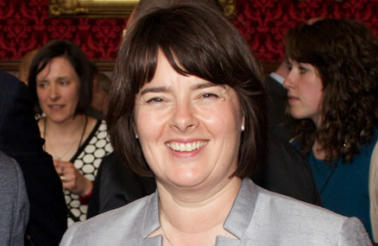A Commons committee debate yesterday on the new bill proposing changes to the Gift Aid Small Donations Scheme ended with the government refusing to extend it to SMS, online and cheque donations, despite efforts by opposition MPs to persuade it to do so.
Among the changes that had been suggested to the Small Charitable Donations and Childcare Payments Bill by various Labour and SNP MPs included widening the scheme to include donations by text, cheque or the internet; removing the requirement for charities to have to match donations by a ratio of 10:1 to their gift aid claims; and ensuring that local scout, girl guide and cadet branches are able to claim individually under the scheme, rather than being considered as part of a single national charity.
The bill already extends the scheme from solely cash donations to contactless payments – including Oyster cards - but Labour MP Rebecca Long Bailey argued that text donations ought also to be included and SNP MP Kirsty Blackman made a case for including cheques.
But Jane Ellison MP, Financial Secretary to the Treasury, said the scheme was “never intended to cover methods of donations for which well-established and well-used processes for claiming gift aid already exist”.
Gift aid matching requirement
In response to submissions to remove the matching requirement, Ellison said that the bill already removes the requirement for charities to have been registered with HMRC for two years before they can make claims under the scheme, and the requirement to have a specified history of gift aid claims. This leaves the matching requirement as the only link between the Small Donations Scheme and the wider gift aid scheme, she said, and this link is important to deter fraudulent claims.
Ellison also declined to launch a review of the gift aid scheme as a whole within the next six months, as requested by Long Bailey.
Connected charities and community buildings
The new bill proposes changes to the community buildings section of the scheme, which Ellison claimed would make the rules “much more flexible and generous”, especially for very small local charities.
“The government anticipates that the vast majority of connected charities will be better off claiming under the community buildings rules, because connected charities are to be provided with an £8,000 allowance for each building, rather than a single £8,000 allowance to be shared between the group. The vast majority of connected charities will automatically receive the most beneficial allowance,” Ellison said.
Long Bailey said the opposition was happy to support these changes, but she requested the bill be amended to make clear that local scout groups, girl guide groups, and Army, Navy and Air Force cadet groups are not considered to be connected, so that they can claim individually under the scheme.
However Ellison refused to support this proposed amendment, claiming that scrapping the connected charities rules would incentivise large charities to “splinter into groups of smaller charities to increase their entitlement to small donations allowances”.
But Labour MP Anna Turley refused to let the point drop: “This is a really important provision that deserves greater explanation from the government,” she said.
“It should seek to include organisations, such as Age UK or Mind, which have much more devolved structures. For example, on the back of the loss of the steelworks in Redcar and Cleveland, the number of referrals to Redcar and Cleveland Mind went up by 93 per cent. That charity relies almost entirely on its own local fundraising. That is an exact example of where the charity ought to be able to have a lot more freedom to raise money and keep its gift aid donations locally, rather than having to be part of a national structure. I implore the minister to take this away and explore it much more widely.”
Ellison responded that she was “fairly certain” that the charity cited by Turley would benefit from the bill, because it probably does not fundraise in its own premises.
“If it fundraises in the local area through quizzes or events or whatever it will now be entitled to claim against its community building for any activity in the local area,” she said.
Rebecca Long Bailey then referred the minister to a comment from CFG that scouts and such groups often cannot claim under the community buildings rules because buildings have to be open to the public some or all of the time, and scout huts and barracks are usually closed to the public.
“Charity Finance Group has made a suggestion that HMRC could develop regulations and criteria to define local groups for the purposes of the Act. Would the minister give serious consideration to that proposal?,” Long Bailey asked.
“I am happy to reflect on the points made,” Ellison concluded.









